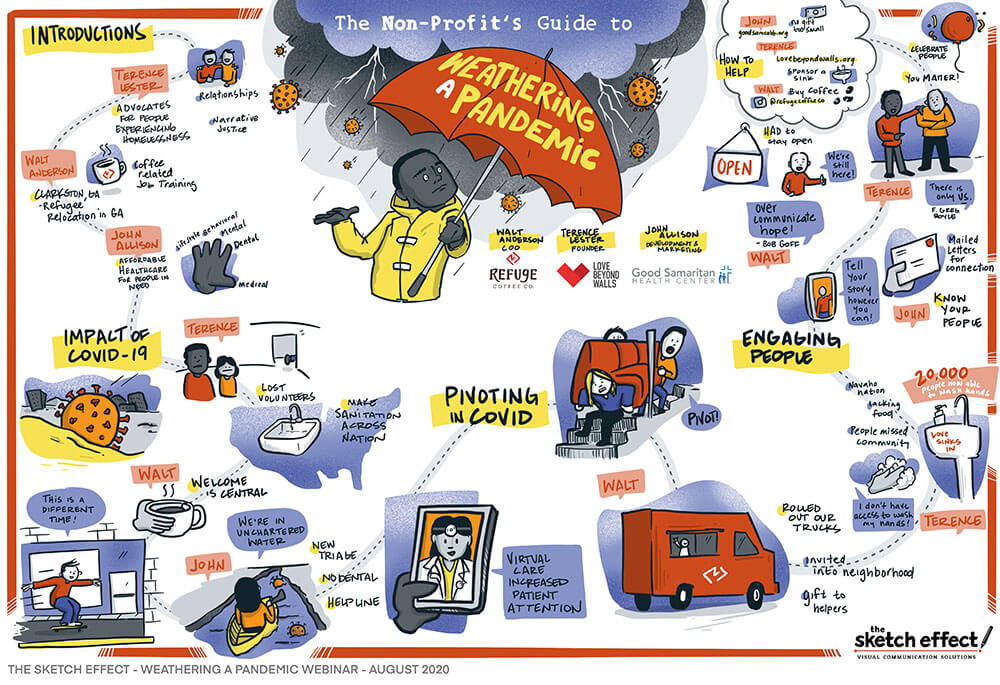
Sketch artist Joe Watkins’ illustration documented the conversation during a webinar featuring leaders from three nonprofits. (Courtesy The Sketch Effect)
Nonprofits, along with many other sectors, have struggled during the COVID-19 crisis. On Aug. 27, a webinar brought together leaders from three nonprofits to talk about how they are engaging their stakeholders and moving forward. The Sketch Effect — which offers virtual live-sketching services to increase engagement during Zoom meetings — hosted the one-hour webinar as sketch artist Joe Watkins illustrated their discussion.
Here are three takeaways from their conversation:
Speak your audience’s language. Some people are skilled in the digital world, while others still prefer the personal touch of receiving mail, said John Allison, who works in development and marketing for Good Samaritan Health Center, an organization that provides access to medical care to those without it. One of the first things the organization did was to mail donors and supporters a letter written by a board member on behalf of the center, articulating the challenges the center currently was facing, Allison said, along with “the things that we projected that would be a serious challenge ahead of us.” The organization received a “landslide response,” he said. “I know we live in a digital age and we have to have it; it’s critical. But there are folks that still respond to a hard copy in the mail.”
Communicate hope. “If there’s ever a time to over-communicate … [to say] ‘Hey, we’re still here serving you,’ it’s probably the time we’ve been living,” said Walter Anderson, president and COO of Refuge Coffee Company, a coffee truck and shop developed to create jobs for those in need in the Clarkston, Georgia, area. “Something I’ve learned during this time is when you can communicate assurances, communicate hope that things are going to be okay, that’s something during a pandemic or any transitional time that is really, really important,” he said. Even if the nonprofit itself was going through a dark time financially, Anderson added, it was crucial for Refuge Coffee Co. itself to not go dark on its patrons. “Any time we had an opportunity to share and give assurances … by coming to people’s neighborhoods and saying thank you with a cup of coffee — I think it was really important and continues to be really important.”
Remember the power of storytelling. “I’ve used storytelling as a vehicle,” said Terence Lester, founder of Love Beyond Walls, an organization that provides groceries, hand-washing stations, laundry services, grooming services, and more to those in need, Lester said. “I’m constantly asking the question as a leader — how can I invite people into this vehicle to take a journey with me?” Whether someone donates 10 hand sanitizers or donates groceries to someone in need, “every single person in this journey matters, and I’m constantly trying to figure out a way to let people know that their contribution matters,” Lester said. Simple messages of encouragement like “That’s awesome!” are words that some people “haven’t heard probably all week, all year, all pandemic,” he said.
Casey Gale is associate editor of Convene.
